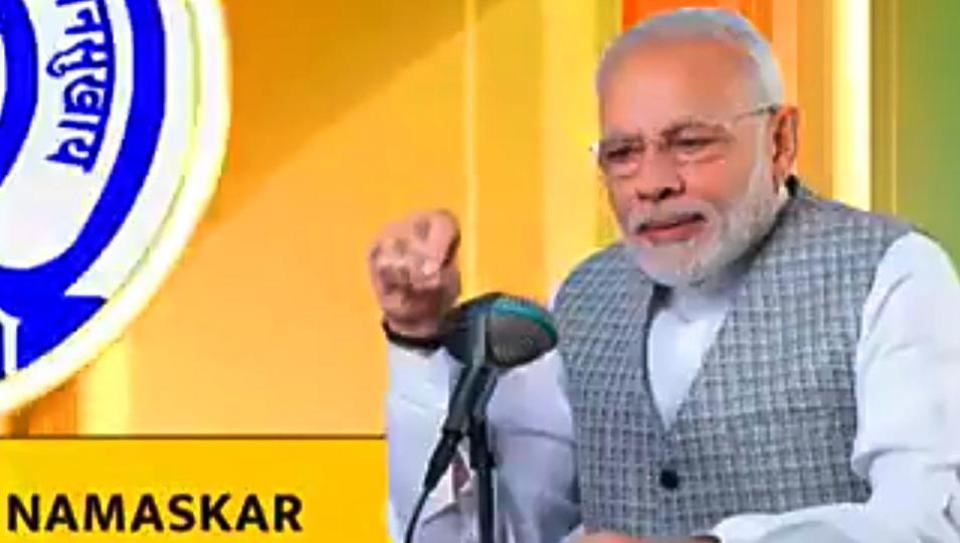'THE TRUTH'
| Date :02-Jul-2019 |

THE emphasis laid on democracy as a core value of Indian culture by Prime Minister Mr. Narendra Modi in his revived radio talk show ‘Mann Ki Baat’ is ‘the’ truth of India not for today but also for countless centuries. The Prime Minister was celebrating the success of democracy and motivating the people to understand the metaphor of collectivism, especially in the past five years. He was celebrating the changing paradigm of democracy where common Indians are being sucked into the process of collectivism, in the process of receiving the actual, measurable, practical and physical benefits of good governance. There is a historical reference to the Prime Minister’s assertion even if he has not said so in so many words. In the past some time after re-election, Mr. Modi and all his colleagues have been insisting upon an important aspect: the changing nature of India’s domestic politics.
The electoral outcome this time has baffled all so-called electoral pundits as voting pattern demolished long-held beliefs of how the people got divided in social segments bound by narrow definitions such as caste, religion and to some extent creed. The recent elections broke all the myths into pieces and handed out a mandate that flummoxed pseudo-intellectuals, pseudo-liberals, and pseudo-seculars. All that happened because Indian democracy assumed an altogether different paradigm -- of common people voting in massive numbers (the highest so far at 69-plus per cent with 53 per cent of women registering their presence in the voting lines).
This happened because the common people, beyond caste and class and religion and creed voted simply because they received actually the physical benefits of good governance, no matter, then, the sham and falsehood the Opposition tried to foist about the so-called failures of the Government. It is this changing paradigm the Prime Minister has referred to indirectly in his ‘Mann Ki Baat’ statement. It is not difficult to understand his logic: Even though India did have an electoral democracy since Independence -- which has become a point of global attraction -- the actual benefit of a people-oriented governance had never reached the masses in a true sense.
That was the reason why large sections of Indian populace remained deprived of the positive reward of democracy for decades. Benefits did reach people, but only in minuscule proportions, giving an impression that the people were only casting their universal adult franchise in elections without being the actual sovereigns, as stated in the Constitution. They only voted in good numbers, but never felt that they were integral to the idea of India, as actual benefits of people-oriented governance never reached them in enough measure.
That was also why the common people could never feel that they were an integral part of the story of new, emerging India. The picture changed in the past five years as the outreach of benefits of good governance encompassed every possible common Indian household that had been deprived of simple benefits such as toilets, cooking gas, electricity, bank accounts, education to every child -- mostly girls, institutions of higher learning in most regions of the country so that the local kids could get there and elevate themselves, medical and financial support during pregnancy and delivery, medicare benefits to every patient whose annual income was below a certain level ...! The list of these practical benefits is long, and speaks of how democracy has been made a practicable and all-encompassing system. This is the democracy ancient India had, Mr. Modi asserted in his first edition of the revived ‘Mann Ki Baat”. Some people may call it propaganda, but in reality, the Prime Minister was explaining to the people the actual metaphor of democracy.